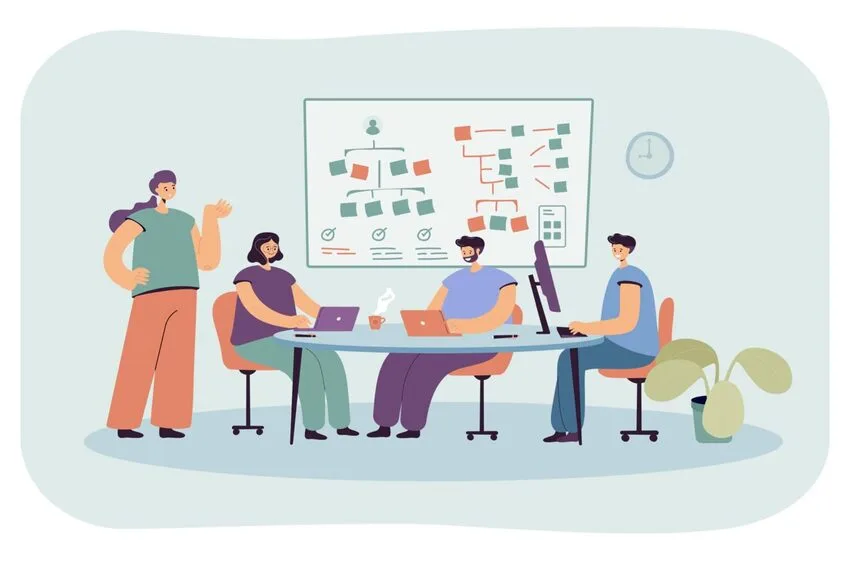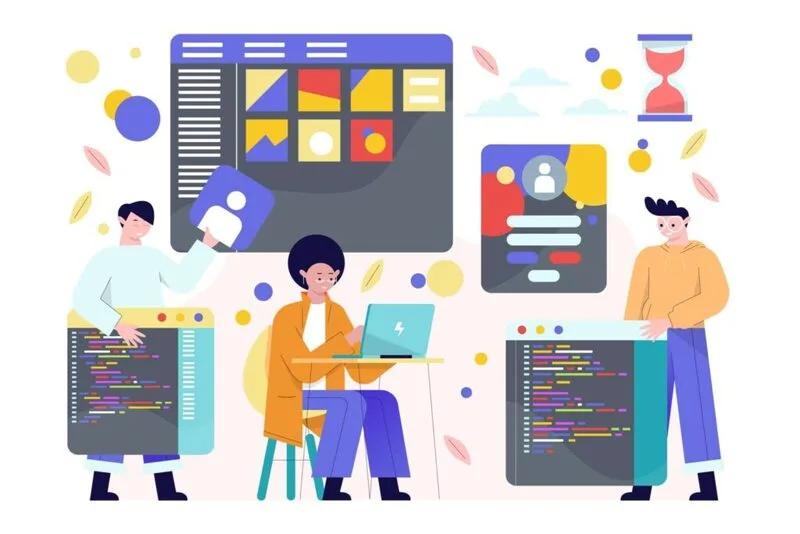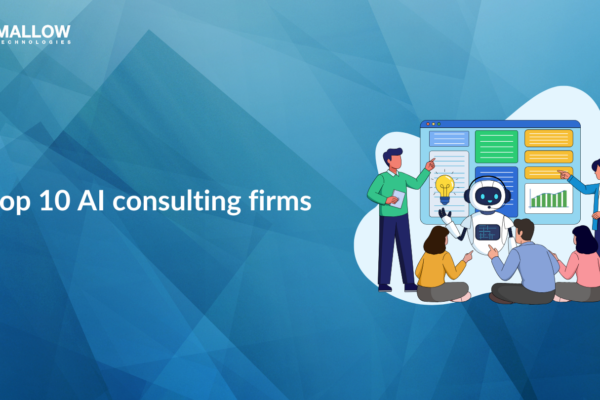Hiring the right application development team is a critical decision that directly affects the long-term maintenance, scalability, and success of your application. The process can feel overwhelming, especially with many factors to evaluate and uncertainty around skills, timelines, and costs. The ongoing talent shortage in the industry adds to this challenge. However, with a structured approach and a clear understanding of what to look for, you can build a capable team that supports your application’s growth and stability.
At Mallow, we take pride in consistently delivering successful outcomes for our clients within agreed timelines. This success is driven by our thoughtful approach to team building. We focus on aligning the right expertise with the right project from the very beginning.
By carefully evaluating each client’s requirements and relying on insights from our experienced business analysts, we assemble development teams with the exact skills needed for each project. This targeted approach helps us deliver reliable, high-quality solutions while ensuring efficiency and clarity throughout the development process.
By reading this article, you will gain a clear understanding of the key factors to consider before hiring an application development team. You will learn how to make informed decisions, choose professionals who align with your project goals, and avoid common hiring mistakes. You will also gain practical insights into optimising your budget and reducing unnecessary costs, helping you confidently begin the process of building a strong and effective development team.
What’s the result of hiring the right development team?
Some of the most valuable outcomes of hiring the right application development team are outlined below.
1. Clear and effective shaping of your application
Choosing the right development partner means working with a team that can guide you, even when your ideas are still taking shape. A strong development team does more than write code. They take time to understand your business goals and ask the right questions.
Through research, discussions, and requirement analysis, the team helps shape your application. This includes identifying the right features, defining functionality, and recommending suitable technical solutions. This early guidance creates a strong foundation and ensures the application aligns with real business needs.
2. Higher quality final product
Hiring the right development team leads to a higher quality application. Experienced developers follow industry best practices, write clean code, and test thoroughly at every stage.
This attention to detail creates a stable, reliable, and secure application. It performs well, meets user expectations, and reduces issues after launch. It also lowers long term maintenance effort.
3. Faster time to market and competitive advantage
An experienced development team can help you reach the market faster. They understand workflows, anticipate challenges, and make quick, informed decisions. By following agile practices, they keep projects moving smoothly and adapt to changes without delays.
Faster launches allow businesses to act on market opportunities sooner. Skilled teams also introduce innovative features, use modern technologies, and build user focused applications. This helps products stand out in a competitive market.
4. Lower long-term development costs
Hiring experienced developers may cost more at the start, but it often saves money over time. A skilled team plans the project carefully and avoids unnecessary rework. This reduces errors that cause delays or added expenses.
They also choose cost effective technologies and scalable solutions without sacrificing quality. This approach helps control your budget while delivering a strong and sustainable application.
Which job roles make up an application development team?
Consider an application with around 10 modules. Each module includes 5 to 8 features. The application also needs multiple third party integrations, handles large data volumes, and supports different user roles. In projects like this, hiring the right development team is critical. It helps ensure the application is delivered on time and runs efficiently.
The table below outlines key roles to consider when building your application development team.
| Roles | Responsibilities |
|---|---|
| Project Manager |
|
| Business Analyst |
|
| Technical Manager |
|
| Designer |
|
| Back-end developer(s) |
|
| Front-end developer(s) |
|
| DevOps |
|
| Database Administrator |
|
| Quality Analyst |
|
| Support Analyst |
|
What are the basic steps involved in hiring a development team?
Step 1 – Determine your project requirements
Defining the project scope
Defining the project scope starts with clear goals and deliverables. It means outlining what your application should do and the features it must include. A well defined scope helps estimate effort, resources, and timelines more accurately.
Researching industry standards and reviewing similar projects can also help. These steps provide a better view of typical costs and development time. Speaking with experienced professionals adds practical insight and helps avoid unrealistic expectations or scope changes later.
Identifying the required skills and expertise
Identifying the right skills begins with a clear view of your project needs. This includes the technologies, platforms, and frameworks you plan to use. Once these are defined, list the required skills and rank them based on project complexity.
When reviewing candidates or development companies, look at their experience and past work. Check whether they have delivered similar projects before. Communication skills and the ability to work well with others are as important as technical expertise. Asking for references or recommendations can also help you judge reliability.
Building a team with the right mix of skills and experience leads to smoother execution, better quality, and a higher chance of project success.
Selecting the right project management model
Choosing the right project management model depends on a few key factors. These include how clear your requirements are, how much flexibility you need, and the resources available to you.
If your project has fixed and well defined requirements, the Waterfall model can work well. It follows a structured and sequential process. For projects where requirements may change, Agile methods such as Scrum or Kanban are a better fit. Agile supports regular feedback, quick iterations, and close collaboration between teams.
In some situations, a Hybrid model may be the best option. It combines the structure of Waterfall with the flexibility of Agile. This approach offers balance when projects need both planning and adaptability. For a deeper comparison, Atlassian provides useful guidance on Agile and Waterfall project management models.
Planning the project budget
When planning your project budget, consider all cost components involved in development. This includes development and design costs, infrastructure expenses, third-party tools or integrations, and ongoing maintenance and support.
It is also important to allocate a contingency budget to handle unexpected changes or additional requirements. Proper budgeting ensures financial control throughout the project and reduces the risk of delays or compromises in quality.
Step 2 – Research potential development teams
1. Use third-party sites and online research to find profiles of application development teams
- Explore popular online platforms such as Clutch, Upwork, or LinkedIn to find a wide variety of development teams.
- Look for teams with positive reviews, high ratings, and relevant experience in your industry or specific technologies.
- Consider exploring industry-specific forums, social media groups, or professional networks to find recommendations and insights.
Please note while popular online platforms like Clutch, Upwork, and LinkedIn offer a wide variety of development teams, it’s important to realise that good teams can also be found outside of these platforms through dedicated research and exploration.
2. Go through the websites of the application development teams
- Evaluate the team’s expertise, such as the technologies they specialise in and their development process.
- Check if they provide case studies, testimonials, or client success stories that demonstrate their past projects and the outcomes they have achieved.
3. Checking out their portfolio and past projects
- Evaluate the diversity and complexity of the projects showcased in their portfolio. Look for projects that align with your application’s requirements and objectives.
- Consider the industries they have worked with to determine if they have relevant domain the knowledge that can benefit your project.
Step 3 – Schedule discovery calls with those teams that look promising
What to check during each area of your evaluation?
1. Expertise
- Ask about their expertise in specific technologies
- Ask about the programming languages relevant to your project
- Inquire about the team’s experience in developing applications similar to yours
- Ask if they have worked in any similar domain like that of yours
2. Project Examples
- Request them to explain one of the projects they have worked on
- Ask them to highlight the challenges faced and how they overcame them
- Seek details about the project’s scope and technologies used,
- Discuss the team’s role in its development.
3. Code Quality and Processes
- Inquire about their code commit process and version control practices
- Ask how they ensure code quality (by adhering to coding standards and guidelines)
- Ask about how they conduct code reviews
- Whether they practise automated testing
4. Communication and Collaboration
- Check their communication and project management process and tools experiences
- Before hiring an offshore application development team, it is important to consider how you will manage the time zone differences for daily communication. Ensure that there are clear strategies to effectively handle the challenges posed by varying time zones
- Assess their availability and responsiveness to ensure smooth collaboration
5. Team Structure and Resources
- Inquire about the size and composition of their development team
- Ask about the availability of necessary resources, such as designers, testers, or domain experts
6. Project Timeline and Flexibility
- Discuss their approach to project timelines and deadlines
- Inquire about their flexibility in accommodating changes or additional requirements during the development process
7. Support and Maintenance
- Ask about their post-development support and maintenance services.
- Inquire about their process for handling bug fixes and updates after the application is deployed
8. Security and Data Privacy
- Discuss their approach to security measures and data protection
- Inquire about their compliance with relevant regulations or industry standards
9. Pricing and Contractual Matters
- Request a breakdown of their pricing structure
- Discuss payment terms.
- Discuss any contract or legal aspects, such as intellectual property rights or confidentiality agreements
Note – When evaluating application development companies, it’s crucial to remember that selecting the lowest-priced option shouldn’t be the sole determining factor. Consider the quality of the end product you will receive and the process followed by the application development team in building your application. Taking these factors into account ensures that you prioritise the overall value and quality of the final product rather than solely focusing on cost.
10. Client References and Testimonials
- Ask for references from previous clients to get their perspective on working with the development team.
- Inquire about any testimonials or case studies that showcase their success stories.
Step 4 – Evaluating the shortlisted teams

Start by assessing the technical skills and expertise of each team. Review their experience with the relevant technologies and evaluate how well they can handle your application’s specific requirements. This helps ensure they have the practical knowledge needed for your project.
Next, evaluate their communication skills and thought process. Pay attention to how clearly they explain ideas and how effectively they respond to your questions. Strong communication is essential for smooth collaboration throughout the project.
Revisit any notes you took during calls or meetings with the teams. Comparing these notes can help you recall important discussions and identify key differences between candidates.
Finally, check references and review past work experience. This provides valuable insight into their reliability, work quality, and ability to deliver on commitments. By carefully considering all these factors, you can confidently shortlist the most suitable teams for further evaluation.
Step 5 – Make a decision and finalise the contract
In the final step of hiring an application development team, focus on a few critical aspects to ensure a smooth start to your project.
Begin by carefully evaluating and selecting the right development team. Consider their technical expertise, past experience, and how well they align with your project requirements and business goals. The right fit is just as important as technical capability.
Once you have chosen the team, move on to contract discussions. Clearly define the scope of work, expected deliverables, timelines, and payment structure. Open and transparent discussions at this stage help prevent misunderstandings later.
After reaching mutual agreement, formalize the contract. Address legal and intellectual property considerations upfront and establish a realistic project timeline. By following these steps, you can confidently onboard a reliable and capable development team for your application.
How do application development companies determine the cost they charge?
Understanding the process of hiring an application development team is essential for managing the hiring journey efficiently. By following the steps outlined above, you can make informed decisions when evaluating potential teams, assessing their skills and expertise, and conducting interviews.
Preparing a clear list of questions, running initial discussions, and checking references help you gather the right information before making a final decision. These steps reduce uncertainty and increase your confidence in choosing the right team for your project.
To further strengthen your decision-making, it is also important to understand how application development companies determine their pricing. Exploring the factors that influence development costs will help you evaluate proposals more accurately and plan your budget effectively.
Check out our article to get more insights on how application development companies determine the cost they charge you. By familiarising yourself with the cost-determining factors, you can effectively assess the cost estimates provided by your chosen development team. This article will provide you with an overview of these factors, enabling you to make informed evaluations of the cost estimations received from your development team.
Still unsure about how to proceed further with your application development process? Feel free to reach out to our team.
Your queries, our answers
Once the project is completed and all agreed-upon payments are made, full ownership of the source code and intellectual property rights are transferred to you. This ensures that you retain complete control over the software and its future development.
We believe in transparent and proactive communication. Throughout the project, we use tools like Jira and Slack for task management and updates. We also schedule regular meetings to ensure alignment and gather feedback at every stage of the development process. For more details on how we keep communication seamless and efficient during the development journey, check out how we ensure smooth interactions while building your application.
Our client base spans various industries, including healthcare, finance, retail, logistics, and more. We work with startups, small businesses, and large enterprises, tailoring our solutions to meet the unique needs and challenges of each client.
Mallow has been delivering custom software development services for over 13 years. Our experience allows us to provide high-quality, scalable, and innovative solutions to clients from various industries, ranging from startups to established enterprises.
We offer a wide range of services, including native iOS and Android app development, web development using technologies like PHP (Laravel) and Ruby on Rails, front-end development with ReactJS, and DevOps support. We also provide consulting, maintenance, and ongoing support to ensure your software runs smoothly.
Our pricing is flexible and tailored to the project requirements. We offer different engagement models such as fixed-price, time and material (T&M), and dedicated team models to suit the complexity and scope of the project. Get in touch with us to discuss a pricing structure that fits your budget and needs.
Yes, we can provide case studies and project examples relevant to your industry. Whether you’re looking for mobile apps, web applications, or digital transformation solutions, we have a portfolio showcasing our successful collaborations across different sectors.
We specialize in a range of technologies including PHP (Laravel), Ruby on Rails, ReactJS, HTML, CSS, native iOS and Android app development, and DevOps tools. Our technical expertise ensures that we can deliver scalable and robust solutions tailored to your specific needs.
Mallow has been delivering custom software development services for over 13 years. Our experience allows us to provide high-quality, scalable, and innovative solutions to clients from various industries, ranging from startups to established enterprises.
Yes, we can accommodate changes in project scope. However, any significant changes may affect the overall timeline and budget. We use an agile development approach, allowing flexibility to adapt to your evolving business needs while providing transparency on how adjustments will impact the project. Looking for expert guidance on your next project? Contact us today to get started.
Author
Jagajeevan
Jagan is a successful project manager with over 8 years of experience at Mallow Technologies. With his strong leadership skills and meticulous approach to project management, Jagan has consistently delivered successful outcomes for a diverse range of client engagements. Throughout his career, Jagan has been responsible for overseeing complex projects from inception to completion. His excellent communication skills and collaborative approach enable him to understand client requirements, effectively communicate project progress, and address any concerns that may arise. Outside of his work, Jagan is an avid reader and finds solace in the world of books during his free time. He believes in continuous learning and stays updated with industry trends, management methodologies, and leadership practices through his reading habits.




